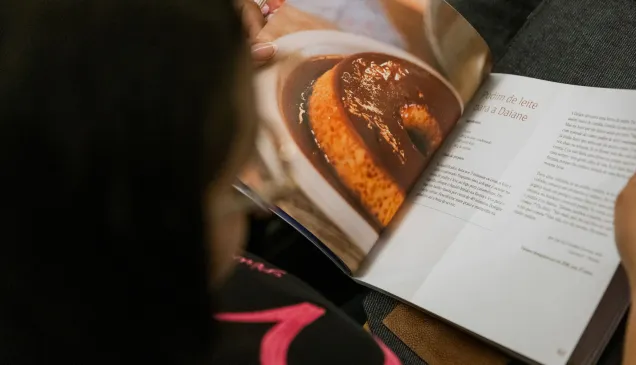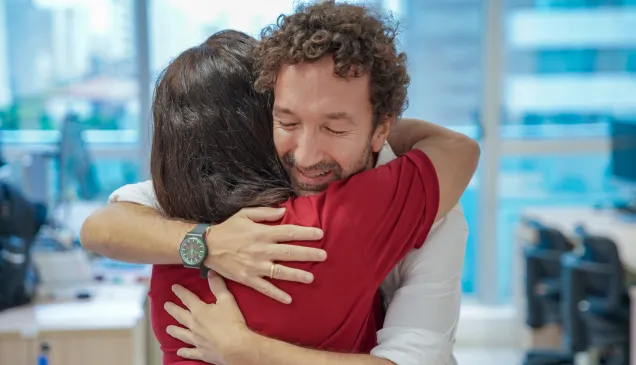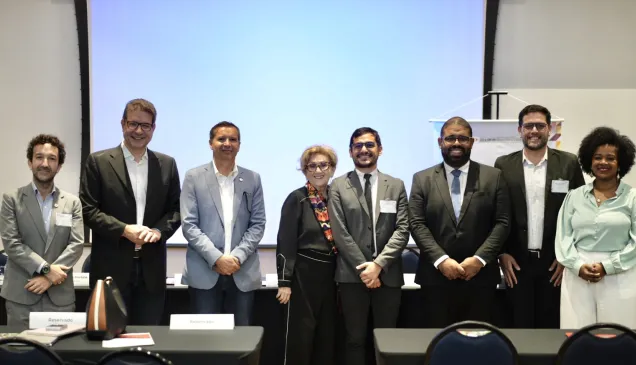Restoring contact between separated Pemon indigenous family members in Brazil
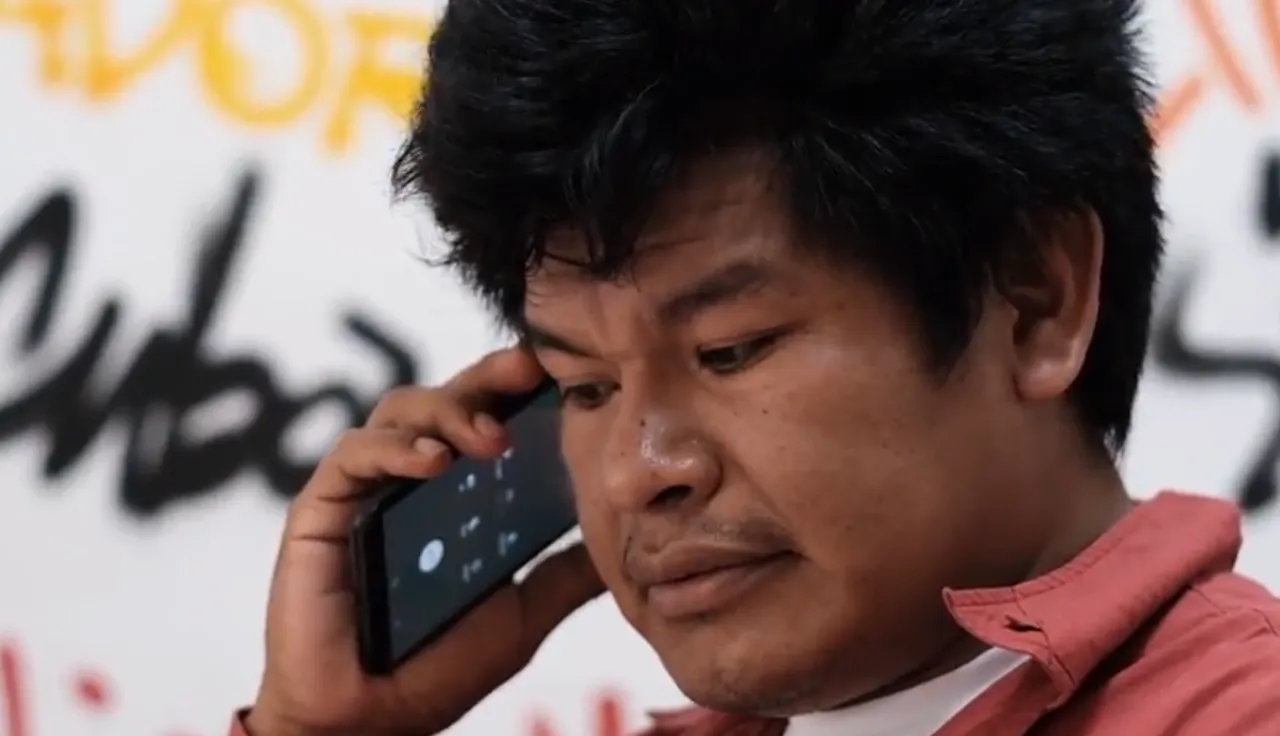
In an indigenous community in Roraima, in northernmost Brazil, a family anxiously awaits a phone call.
Though brief, this satellite call will give farmers John Cliffe, 75, and his wife Basilia, 55, a rare opportunity to speak with their 33-year-old son, Jeremías. Three years ago, Jeremías left the community and migrated to São Paulo, where he now lives in a shelter for refugees and migrants.
The call comes in and John, Basilia and Jeremías chat away in Pemon, the native language of the Pemon people. They make the most of every minute, checking how each other is doing, so far apart.
This contact was made possible by the International Committee of the Red Cross (ICRC), in cooperation with the Brazilian Red Cross, as part of a regional service run by the International Red Cross and Red Crescent Movement. Spanning several countries, the service is designed to help migrants to keep in touch with loved ones and update them on their whereabouts, through free phone calls, internet access and phone charging points. Contact between separated family members is a humanitarian need – whether the cause of separation be migration, natural disaster, armed conflict or another form of violence – and, as such, falls within the Movement's remit.
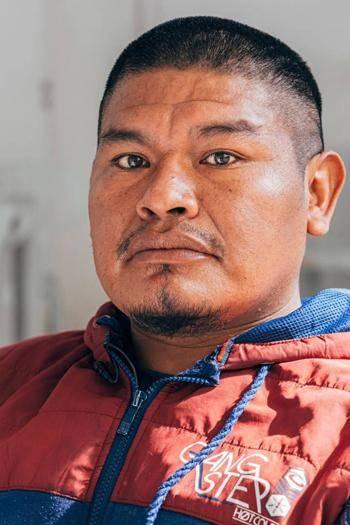
Jeremias Cliffe. Photo: Bianca Vasconcelos/ICRC
John and Basilia live in the mountainous region of Bananal, close to the border with Venezuela, where the family migrated from a few years ago. With no phone signal and no public internet access, it is difficult to stay in touch with people who leave the area.
The last time that John spoke to his son was over a year ago, in 2019, when they managed to make another call through the same service. That was the first contact between them since Jeremías left for São Paulo almost two years earlier. Being out of touch for so long, his parents had begun to fear the worst. They later learned that he had travelled through Colombia and Peru before re-entering Brazil and finding shelter in São Paulo, over 4,000 kilometres away.
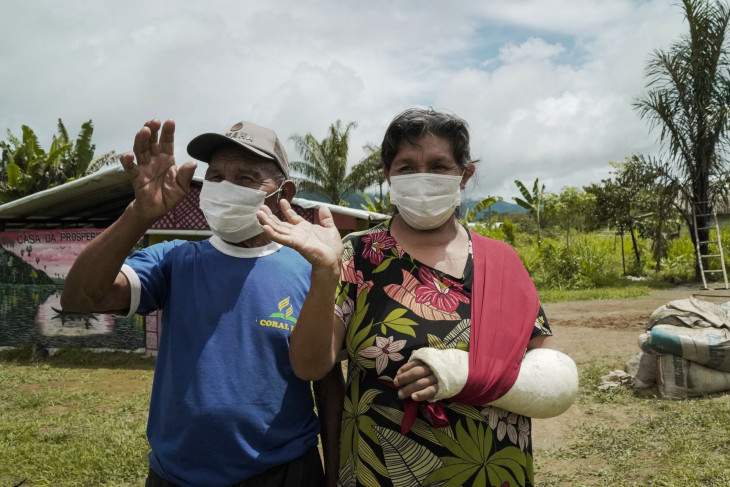
John and Basilia after talking with their son. Photo: Fabrício Marinho
"Although I didn't show it, I was very sad," says John, describing his experience of today's phone call. "It's difficult when your child is so far away. I want him to come home when he can – I want to see him in person. But just hearing his voice has made me very happy, and that's what counts."
His wife, Basilia, tells us that although she knows her children left in search of a better life, she naturally feels anxious about Jeremías being so far away.
"My children are scattered across different places," she says. "The Pemon people have become nomads, for the sake of survival. But in our case, the only thing that's missing is the means to stay in touch. All this time, I was wondering how Jeremías was. Today, I had some good news from him – and some sad news, in this time of pandemic. But he told me he's fine and he has his friends. It's a relief just to hear that."
At the other end of the line, in São Paulo, Jeremías is clearly anxious. "I don't have a phone. Sometimes I speak with my siblings, but it's more complicated with my parents and that makes me nervous," he says. "The only news I get comes from other people. I've been here three years and I've only spoken to them twice, through these calls. I'm glad to be able to speak to my mother, to share our joy and our sorrow, and to hear how they are – especially their health. I'm grateful for this opportunity."
The deputy head of the ICRC's office in Roraima, Andrea Cristina Godoy Zamur, explains that contact between separated family members helps to maintain human dignity:
"It's very important for family members to be able to contact each other when separated by migration," she says. At the ICRC, we have specific experience in this field, which is why we launched and expanded this service across the region. By helping migrants to keep in touch with their families, we're helping to reduce the risk of disappearance and improve well-being.".
This service is available in various places in the state of Roraima. In the city of Pacaraima, on the border with Venezuela, it is available at the reception and identification office (PRI), triage centre (PTRIG), migrant shelter BV8, Janokoida indigenous shelter, all Operación Acogida facilities, and also at Casa San José, Casa Hogar, and at the Centro de Capacitación y Referencia (reference and training centre), supported by partner organizations. We also run the service in state capital Boa Vista and in Manaos, in the Amazon.

